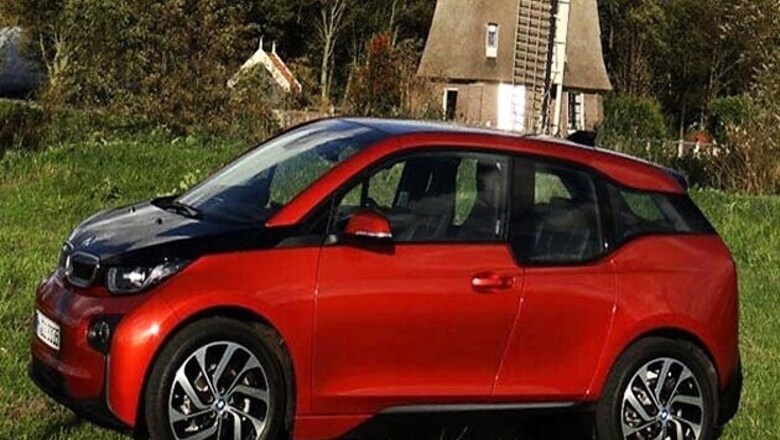
views
Washington: Researchers have developed a new battery component that can allow electric vehicles to travel longer distances before needing to charge.
The novel design for a critical part of the battery has been shown to significantly extend the technology's lifespan, bringing it closer to commercial use.
A "hybrid" anode developed at the US Department of Energy's Pacific Northwest National Laboratory (PNNL) could quadruple the life of lithium-sulphur batteries, researchers said.
"Lithium-sulphur batteries could one day help us take electric cars on longer drives and store renewable wind energy more cheaply, but some technical challenges have to be overcome first," said PNNL Laboratory Fellow Jun Liu, who is the paper's corresponding author.
Today's electric vehicles are commonly powered by rechargeable lithium-ion batteries.
But the chemistry of lithium-ion batteries limits how much energy they can store. The battery's main obstacles are unwanted side reactions that cut the its life short.
Most lithium-sulphur battery research to date has centred on stopping sulphur leakage from the cathode. But the new study determined stopping that leakage can be particularly challenging.
They focused on adding a protective shield to the anode, made of graphite, a thin matrix of connected carbon molecules that is already used in lithium-ion battery anodes.
The graphite shield moves the sulphur side reactions away from the anode's lithium surface, preventing it from growing the debilitating interference layer.
Combining graphite from lithium-ion batteries with lithium from conventional batteries, the researchers dubbed their new anode a hybrid of the two.
The new anode quadrupled the lifespan of the lithium-sulphur battery system the team tested.
"Tests showed a battery with a hybrid anode can successfully be charged repeatedly at a high rate for more 400 cycles, and with just an 11-per cent decrease in the battery's energy storage capacity," said Liu.
The study was published in the journal Nature Communications.

















Comments
0 comment